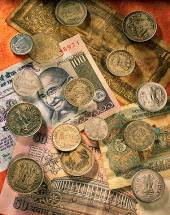 | « Back to article | Print this article |
 Over 5 per cent increase in railway freight on all major commodities like foodgrains, petroleum products and fertiliser will fuel inflationary pressure, say economists.
Over 5 per cent increase in railway freight on all major commodities like foodgrains, petroleum products and fertiliser will fuel inflationary pressure, say economists.
"Definitely there will be some increase in transportation cost. . . transportation costs for heavy industries like coal and cement will rise by at least 0.5 per cent. Besides, inflation will also increase by 0.25 per cent," Chief Economist at RPG Foundation Pai Panandiker said.
Wholesale Price Index-based inflation declined to 6.62 per cent in January, however, retail inflation remained in double digits at 10.79 per cent during the month.
Commenting on hike in freight charges, Brinda Jagirdar, chief economist from SBI, said the increase was inevitable in the face of rising fiscal deficit, however, it will keep inflation elevated.
"We have to look beyond inflation.
"There is pressure on the economy because of rising fiscal deficit. "Growth is more important.
"I agree it’s a hard step, but it will increase the amenities, and improve safety.
"The hike was inevitable. It will certainly keep inflation elevated, but marginally," Jagirdar said.
Railway Minister Pawan Kumar Bansal in the rail budget for 2013-14 proposed hiking basic freight rates by over 5 per cent on commodities such as grains and pulses, coal, iron and steel, urea, iron ore, cement, pig iron, high speed diesel oil, groundnut oil, kerosene and liquefied petroleum gas.
Chief Economist from Crisil DK Joshi said, "It will add to inflation but cannot have spillover effect because the